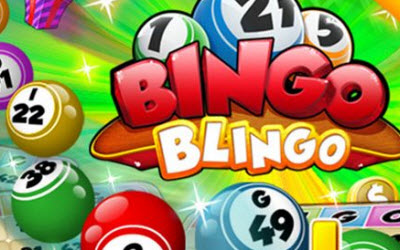Takahashi: Gambling is long overdue for a shake-up, though. It needs to be disrupted.
Keustermans: Definitely. That’s true.
San: It’s obvious that gambling is entertainment, and people have an expectation of how much their entertainment costs. If they really want to measure it, they have an expectation of how much it costs them per hour. How much does a social game cost per hour? It definitely has to be entertainment, whether it’s social gaming or social gambling or real-money gambling. It has to still provide value.
Takahashi: Where all the territories headed on these issues of blurriness or regulation? Can you guys spell out some of them?
Harper: One thing I’ll say is that I don’t think regulation is necessarily the opposite of blurry. Regulation can create blurry as well. I’m not going to try to answer that question, but as far as saying, “Is it going to be blurry or is it going to be regulated?” I don’t think those are different sides. It could be blurry and regulated or blurry and unregulated.
San: And regulation can also stifle creativity and innovation. So there are big downsides to regulation. But there are also opportunities in regulation because then you know what’s allowed or isn’t allowed. Someone’s decided it.
Keustermans: There’s a degree of hysteria, primarily driven by tabloid media and so on. But I think the conversations we have in the U.K., for example, with the U.K. Gambling Commission, have been very constructive. They say, “We don’t understand what this is. It looks a bit like gambling, but it isn’t gambling.”
San: They tend to be very pragmatic. They genuinely want to learn and figure it out and work with the industry. They’re taking a very careful, measured approach.
Takahashi: Is Nevada going to be as pragmatic as the U.K.?
Keustermans: I’d say that they have bigger issues to deal with right now than looking at games. But I would think that right now, in the U.S. games industry, the focus is going to be on digital real-money online gambling before they have time and energy left to start looking at free-to-play games.
Harper: My experience, to be clear, is very limited. I work in the social side of the business. But there’s a lot of crossover right now. The crossover, to your point, is making things very blurry. In Nevada and New Jersey, they know how to regulate gambling. They’ve been doing it a long time. What they don’t understand is, when you say “social” or when you say “interactive,” there are aspects to those words that they probably intuitively get. These are people who use computers every day. But they’re not quite sure how to regulate that yet. That’s where they’re going to be more paced and a bit slower.
But as far as regulating the gambling aspect of that, they’re already professionals. They know what they’re doing and they’ve been doing it a very long time. At least from my vantage point, the only place they’re hesitating is when you start talking about social. They want to make sure that social either is or is not gambling. If it is, they know what to do about it. If it’s not, they’d love to just get it off their plate and not have to worry about it. Until they’re very clear on that, though, they’re uncomfortable.
 Grant: I think that we in the social industry have an opportunity to engage and approach them and do some education. One of the great things we have is data. We have more data than anybody else in any other type of industry, perhaps with the exception of the traditional gaming industry. But that data can be a powerful tool to educate them.
Grant: I think that we in the social industry have an opportunity to engage and approach them and do some education. One of the great things we have is data. We have more data than anybody else in any other type of industry, perhaps with the exception of the traditional gaming industry. But that data can be a powerful tool to educate them.
San: I think social gaming has much more data than the real-money gaming industry. You have analytics on all the various parts of the funnel and all the instrumentation inside the games. You have significantly more data than the real-money industry.
Grant: But also in terms of community management and player management: the community service systems, the community management systems, the marketing, the records, the data, our ability to express how many people are playing or how many issues we have. What’s going up? What’s going down? How do we address that? What’s our response time? How do we triage or prioritize? Does someone complain five times or do they complain once? There’s lots of good data there. But with comparable information sets, we have a good opportunity to do some education.
Dale: I also don’t think that’s going to be a priority when you’ve got single-digit play-for-real customers. If you’ve got social gamers, the numbers vary, but I think it’s a single-digit number that are actually depositing money. I can’t see why a regulator would focus on that. If the numbers were to somehow increase, then you might see a change, but based on behaviors that we’ve seen over the last few years, there’s no reason for that to change. Then, if you do regulate, do you only regulate those customers that are playing for real, or do you regulate the entire A-to-Z of the business? So I think it’s very unclear how all that will work. To regulate that portion of players that are depositing, it’s potentially more time and effort than it’s actually worth.
Here are the introductory remarks for each speaker:
Josh Grant: We’ve acquired a company that provides a spin on the social casino space with a bingo title that leverages the sweepstakes model to allow players to win real cash and prizes in a freemium model game. We spent a lot of time and worked with the studio to create a platform by which we can rewards-based-game enable third-party content. We’re moving into a B-to-B or picks-and-shovels approach rather than trying to be a content provider.
Jill Schneiderman: I’m Jill Schneiderman. I’m the vice president of games for SGN. We’re a cross-platform social games company. What we mean by that is that you can play our games on Facebook, on iOS, on tablet, on mobile, on Android, wherever you are, and have a connected experience with people on other platforms. We focus on social casino games and puzzle games. We’re particularly interested in the place where both of those meet and the hybrid types of games that those can create. We’re about 90 people. We’re located in Los Angeles, San Francisco, and Buenos Aires. Unfortunately, I’m not based on Buenos Aires. We were founded by Chris DeWolfe. He’s the former CEO and founder of Myspace. We have deep roots in social and what it means to make a really social experience. That’s our focus as a company.
 Charles Harper: I’m Charles Harper. I’m the vice president of business development for DoubleDown, which as you probably all know was acquired a year ago January by IGT. Today I’ll be playing the part of Marcus Yoder, who’s my counterpart on the interactive side. I’m sure you’re all pretty familiar with DoubleDown Casino at this point, or I hope you are. We started out as a very small independent social game company with one game, and that’s DoubleDown Casino. We haven’t really varied from that. Through the acquisition with IGT, we’re starting to get to know this world quite a bit better and learning where our place in that world is.
Charles Harper: I’m Charles Harper. I’m the vice president of business development for DoubleDown, which as you probably all know was acquired a year ago January by IGT. Today I’ll be playing the part of Marcus Yoder, who’s my counterpart on the interactive side. I’m sure you’re all pretty familiar with DoubleDown Casino at this point, or I hope you are. We started out as a very small independent social game company with one game, and that’s DoubleDown Casino. We haven’t really varied from that. Through the acquisition with IGT, we’re starting to get to know this world quite a bit better and learning where our place in that world is.
Jez San: I’m Jez San. I’m the founder of PKR.com, which is a Europe-based real-money poker site. We’re slightly different from the other real-money games in that it’s a very social game with 3D avatars and a bit of body language. It’s more fun and more intimate. We recently moved into the mobile space. We’re not on Facebook.
Sumit Gupta: My name is Sumit Gupta. I’m the CEO of Bash Gaming. We operate Bingo Bash, which at the moment is the biggest bingo site in the world. We have a portfolio of other casino games, cross-platform games. Our goal is to make our games available on any operating system, essentially.
Raf Keustermans: I’m Raf Keustermans, co-founder and CEO of Plumbee, a London-based social casino game studio. We have one game right now on Facebook, Mirrorball Slots. It’s going to mobile in the next couple of weeks. I have a background in real-money gambling. I actually worked at Unibet, an online gambling operator, for quite a few years, and moved from there to EA and Playfish. We also have a joint venture with Unibet in real-money gambling. We’re 50 percent owners of Bonza Gaming. Bonza is a social real-money gambling startup. It was actually the third company allowed to do real money up on Facebook. Bonza Slots is their first public launch, about two months ago. They’re doing real-money on Facebook in the U.K. for now, and we’ll see how it goes as far as what Facebook’s plans are and what other platforms we can bring that to.
Ben Dale: I’m Ben Dale from Ladbrokes. I’m based in London. Ladbrokes is a U.K. business with 2,000-plus shops globally, predominantly sports shops. We’ve been online for quite some time now, since the late ’90s. We have lots of experience in the high street and online. We’re not currently in social, but we’ve been looking very closely at the space now for nine months or so. We’re believers in social and the value it can bring. That’s why we’re here, to get an understanding and explore social with you all today.
VentureBeat's mission is to be a digital town square for technical decision-makers to gain knowledge about transformative enterprise technology and transact. Learn More
